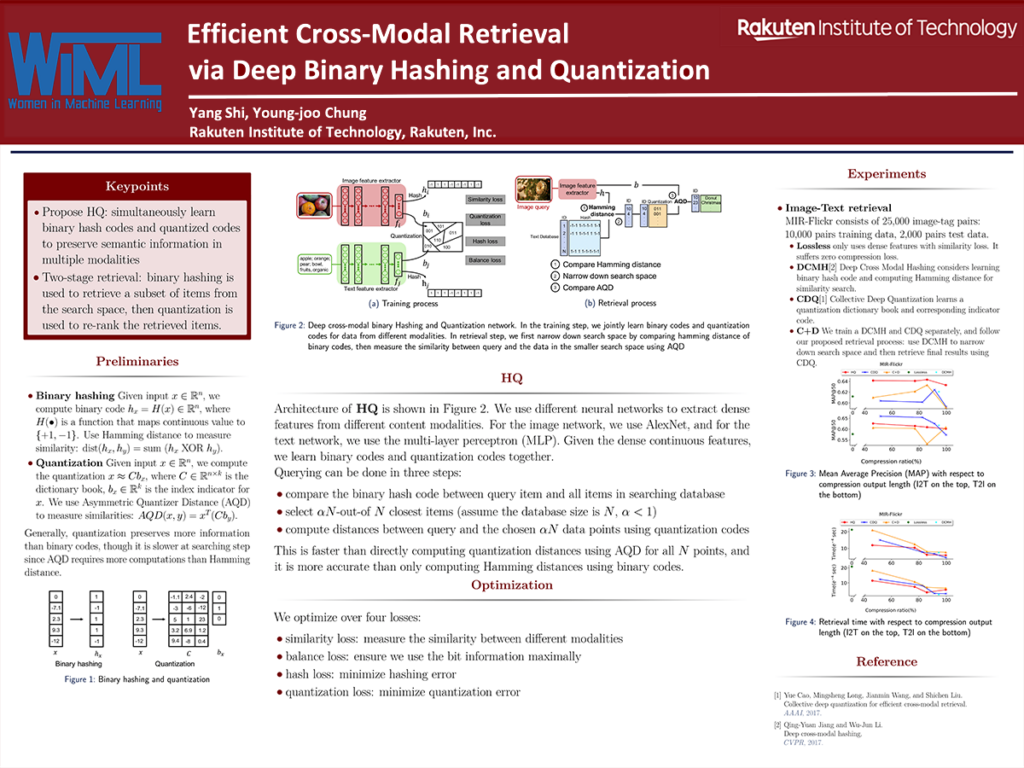NEWS
RIT San Mateo Members Paving the Way Forward at Women in Machine Learning 2020

Women in Machine Learning (WIML) workshop, which was held on July 13 this year, promotes the work and visibility of women in the machine learning community. The workshop was run conjointly with Queer in AI, whose mission is to support queer and ally scientists, and LatinX in AI (LXAI), who supports research and development for Latin Americans working in AI. Invited speakers this year included researchers from University of Toronto, McGill, NAVER LABS Europe, and ETH Zurich, respectively.
As part of this year’s workshop, Yang-shi and Young-joo Chung of RIT San Mateo were invited to present their poster on efficient cross-modal retrieval via deep binary hashing and quantization (HQ). Effective and efficient cross-modal retrieval remains challenging due to large volumes and high dimensions but hashing and quantization provide promising solutions. In their research, they learn binary hash codes and quantized codes to preserve semantic information in multiple modalities by an end-to-end deep learning architecture. They utilize a two-stage retrieval approach where binary hashing is used to retrieve a subset of items from the search space and quantization is then used to re-rank retrieved items. In so doing, they demonstrate that this approach yields faster results while preserving accuracy. Their experimental results also indicate that HQ achieves competitive retrieval results with greater efficiency than state-of-the-art methods that use a single type of compact coding method.
Their research paves forward the growing emergence of efficient machine learning. The investigation of cross-modal retrieval makes connecting large volumes and different sources possible. Also, compression methods will solve issues of computational resources and memory in the future.
This year’s event was held virtually due to the COVID-19 situation. Many researchers who participated presented posters on their research efforts to collect data and use AI and machine learning to help tackle COVID-19 around the world.
We would like to thank all the participants and sponsors, as well as WIML, LatinX in AI, and Queer in AI for providing platforms for greater inclusivity in AI and Machine Learning.

